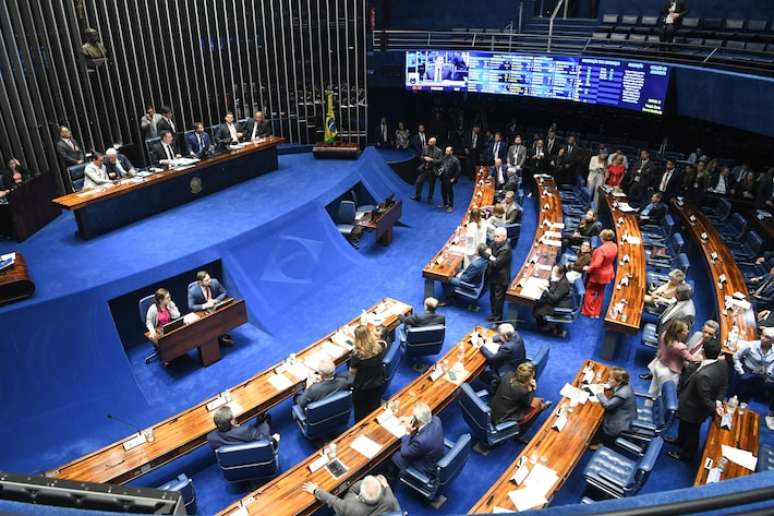A public note signed by six different movements states that the proposal under consideration in the Senate “weakens the democratic system”
BRASÍLIA — Organizations that promote transparency and fight corruption have issued a public statement against the project that modifies the Clean Record Law. For them, the proposal will cause “failures in the fight against corruption” and “will weaken the democratic system.” The issue is on the agenda and should be voted on in the plenary session of the Federal Senate this Wednesday 28.
This proposal, signed by federal deputy Dani Cunha (União-RJ), daughter of former Chamber of Deputies president Eduardo Cunha (Republicanos-RJ), creates new counts of periods of ineligibility and will benefit convicted politicians who have lost the right to participate in elections. Cunha himself will benefit if the project is approved.
Eduardo Cunha’s mandate (which lasted until January 2019) was revoked in November 2016. Under current legislation, the eight-year ineligibility period begins in January 2019, making him ineligible for 11 years, until 2027.
If the bill is approved by the Senate, Cunha’s counting will end in 2024, making him eligible for the next elections in 2026. Cunha also tried to run for federal deputy in 2022. His plans failed.
“The reduction of this period, as provided for in the project in question, contributes only and exclusively to safeguarding the interests of those who already find themselves in the position of representatives of the citizens, but have not been able to perform this role with integrity and morality,” reads the note, signed by six organizations.
The signatories are the Instituto Não Aceito Corrupção, Transparência Internacional Brasil, Associação Ficam Sabendo, the Movement to Fight Electoral Corruption – MCCE and Transparência Partidária.
The group says the project was voted on in a “hasty” manner and civil society “was absolutely and unduly excluded from the construction process” of the bill. “In addition to the approval of the PEC Amnesty, the step back of the Clean Record law will highlight the distance between the priorities of the National Congress and the aspirations of Brazilian society towards a more ethical and responsive policy, states stressed.
To be approved in plenary, a complementary bill requires an absolute majority, that is, 41 senators. If approved, the matter will still go to President Luiz Inácio Lula da Silva for sanction or veto, who will have 15 working days to decide.
The bill establishes three possible counts for the period of ineligibility. The first starts with a court order declaring the removal from office. It applies to members of the executive branch and the legislative branch at the federal, state and municipal levels.
The second concerns the case of abuse of economic or political power. The counting of the period in case of a final decision by the electoral court on the matter begins from the election year in which the abuse occurred. The candidate becomes ineligible only in case of revocation of the diploma, registration or mandate, which is not currently required.
One of the creators of the Clean Record Law, Márlon Reis, argues that this new wording could make former President Jair Bolsonaro (PL) eligible. According to him, his current ineligibility did not imply the revocation of his registration or diploma, since he lost the election and did not receive the diploma, which would have allowed him to regain his eligibility.
The third is the case of resignation after the representation of members of the legislative or executive body, which can lead to the opening of proceedings for violation of the Constitution at various levels. In this case the date of ineligibility runs from the moment of resignation.

Source: Terra
Rose James is a Gossipify movie and series reviewer known for her in-depth analysis and unique perspective on the latest releases. With a background in film studies, she provides engaging and informative reviews, and keeps readers up to date with industry trends and emerging talents.





